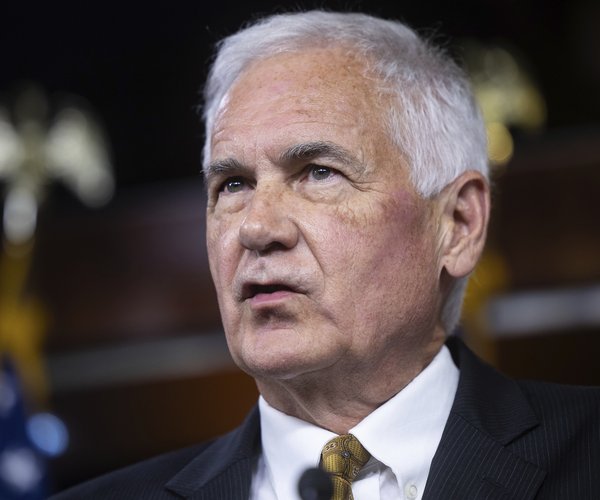The water wars in California are getting uglier.
If you doubt that consider the plight of the Bryon-Bethany Irrigation District. They were slapped — along with other water districts — with a curtailment order on June 12 by the State Water Resources Control Board for water diversions based on pre-1914 appropriative water rights. The targeted districts including Byron-Bethany had the audacity to sue the state on June 26.
Two weeks later, Sacramento Superior County Court Judge Shelleycane Chang ruled the state orders constituted an invalid taking of property.
Byron-Bethany — which serves some 12,000 residents of the Western San Joaquin County community of Mountain House as well as 160 farming families — was basically being cut off from its water needed not just for farmers to grow crops but for residents to drink, wash clothes and flush toilets as well as for fire departments to fight fires.
During a three-day period from June 23-26 SWRCB claims Byron-Bethany pumped 675 million gallons of water from the Old River channel that the district contends they had the right to use. The state-issued curtailment ordered said otherwise.
Then on July 10, the judge ruled the manner in which the state “seized” the water wasn’t legal as it robbed the district of due process. The state, not willing to let a judge essentially tell them what they could do, some 10 days later proposed a $1.5 million fine to punish Byron-Bethany even though a court ultimately decided the state didn’t follow the law in ordering the district to stop pumping water that the district had historic rights to access.
So how does the state respond to a local agency desperately trying to use its water rights to avoid a health and safety emergency from ravaging 12,000 people as a result of a bureaucratic decree that a court later decides was illegal? The answer is you seek criminal charges against one or more water board members and/or the district’s general manager.
That is what Byron-Bethany is claiming. Last week they subpoenaed any and all SWRCB records and communications regarding potential criminal investigations of individual board members of the district. It started when the district got wind that someone at SWRCB requested a criminal background check on one or more of the district’s elected board members.
They also want to know on what authority that the SWRCB can conduct criminal investigations of elected board members.
The state, of course, claims this is a case of black and white or — better put — they’re right and everyone else is wrong.
Staff for the SWRCB was quoted in an Associated Press story on July 22 saying it has a good handle on water flowing through the Old River headed for the 444-mile California Aqueduct.
But do they? The state bases forecasts on rainfall, water content in the snow, how much water seeps into the ground, how much evaporates, stream levels, and reservoir releases. The numbers are adjusted daily. At the end of the day, though, the state is still guessing about how much water is available.
The district contends the state paints with too broad of a brush by looking at entire watersheds instead of smaller waterways. And because the forecast is so broad, the district contends the state can’t assert someone took water illegally if they can’t prove there wasn’t enough water.
That goes to the heart of the issue and why every farmer in and around the Delta with riparian water rights as well as irrigation and water districts have a stake in Byron-Bethany’s fight.
It’s pretty clear that Byron-Bethany has senior water rights established before the advent of state regulation in 1914.
The state alters the playing field by sending water to Southern California. Just how much of that water belongs to who? The state, in the case of Byron-Bethany — has managed to resolve a 102-year debate in less than a month. They essentially said between June 23-26 that for all practical purposes, the Old River channel would have been dry had it not been for flows heading to the California Aqueduct.
Let’s say the state is right. Then the State Water Resources Control Board is making the case of environmentalists, Delta water users, and Northern San Joaquin Valley water districts and cities that oppose the stealth rehash of the Peripheral Canal marketed as the Twin Tunnels.







